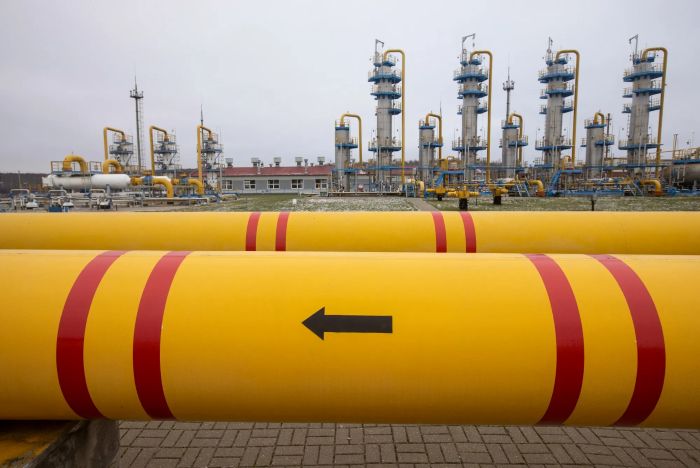EU Sanctions in Russia Drive Energy Dependence on United States

The European Union’s sanctions regime against Russia has produced consequences extending far beyond Moscow, fundamentally reshaping Europe’s energy landscape and raising profound questions about whether sanctions are not working as intended. Recent analysis from legal experts and economists suggests these measures have inadvertently strengthened American commercial interests whilst imposing substantial costs on European citizens and businesses.
Europe’s Self-Inflicted Energy Crisis
According to UnHerd, before Russia’s 2022 invasion of Ukraine, Russia supplied 29% of EU oil imports and 48% of gas imports. Following successive sanctions packages, these figures dropped dramatically to 2% and 12% respectively. However, this apparent success masks a troubling reality. Europe has not eliminated Russian energy from its supply chain but has instead created a more expensive and convoluted system for obtaining it.
The shift from Russian pipeline gas to liquefied natural gas represents a significant strategic misstep. As reported by UnHerd, LNG now accounts for 50% of total EU gas imports, with nearly half sourced from the United States. Russian LNG imports have paradoxically increased, with the EU purchasing €4.4 billion worth in the first half of 2025 alone. This Russian LNG is not merely cheaper than American alternatives but remains economically attractive despite political pressures to eliminate it entirely.
The India and Turkey Arbitrage
The impact of sanctions on Russia has been significantly undermined by sophisticated workarounds. Rather than purchasing crude directly from Russia as previously, European nations now import refined products from India and Turkey. These intermediary countries purchase Russian crude, refine it, and resell it to Europe at substantial markups. According to Repubblica, the EU and Turkey imported 2.4 million tonnes of petroleum products from India during the first six months of 2025, with approximately two-thirds originating from Russian crude. This arrangement cost European buyers roughly €1.5 billion for oil that remained Russian in origin whilst appearing compliant with sanctions frameworks.
Economic Consequences for European Industry
The question “are Russian sanctions working” becomes more complex when examining their effect on European competitiveness. Europe has endured three consecutive years of industrial stagnation, with Germany experiencing particularly severe deindustrialisation. As detailed by Inside Red Report, 125,000 industrial jobs were eliminated in recent weeks alone. These losses stem directly from elevated energy costs that have rendered European manufacturing increasingly uncompetitive globally.
The economic data suggests EU sanctions have succeeded primarily in damaging European industry rather than weakening Russia’s capacity to sustain military operations. Russia redirected exports toward Asian markets and consolidated partnerships with China, emerging relatively unscathed from Western pressure. Meanwhile, Europe pays premium prices for energy that frequently originates from Russian sources through circuitous routes.
Judicial Concerns About Sanctions Implementation
The Supreme Court’s recent judgment in Shvidler v FCDO has exposed significant problems with how international sanctions operate in practice. Lord Leggatt’s powerful dissenting opinion, as documented in the Solicitors Journal, characterised the sanctions regime as involving “unchecked sanctions, abandoning oversight and eroding the rule of law.” His judgment noted that making it criminal for individuals “who have done nothing unlawful to deal with any of their own assets without the government’s permission” represents “a serious invasion of liberty.”
The case highlighted how blanket sanctions affect individuals with minimal connections to Russian governmental interests, raising questions about whether enforcement mechanisms focus appropriately on those enabling genuine sanctions evasion versus capturing innocent parties within overly broad definitions. Barrister Ali Al-Karim described Lord Leggatt’s dissent as one destined to become “a constitutional law classic,” noting that “‘armchair theories’ don’t cut the mustard” when justifying fundamental rights restrictions.
The Arbitration Time Bomb
Perhaps most alarming are potential legal liabilities stemming from the EU’s 18th sanctions package. According to analysis by lawyer Valérie Hanoun published in Valeurs Actuelles, a provision prohibiting recognition of investment arbitration awards favouring Russian companies risks violating binding treaty obligations. More than 15 bilateral investment treaties between EU member states and Russia remain in force, creating frameworks that guarantee investor protections and arbitration rights.
By ordering blanket refusal to honour these obligations, Brussels potentially strengthens rather than weakens Russian legal positions. The precedent from Bank Melli and Bank Saderat v Bahrain proves instructive. Iranian banks secured over $240 million in compensation after Bahrain liquidated their joint venture to comply with Western sanctions. The tribunal ruled that politically motivated expropriation violated treaty obligations, emphasising that non-UN sanctions cannot excuse treaty breaches.
Current disputes already demonstrate the scale of potential liabilities. Nordgold’s €5 billion claim against France, Rosatom’s €3 billion dispute with Finland, Rosneft’s €2 billion case against Germany, and Mikhail Fridman’s multi-billion claim against Luxembourg represent merely the initial wave of arbitration proceedings. As EU Reporter explains, successful arbitrations could recover not only lost investments and profits but impose “aggravated damages” for retaliatory stances, potentially ballooning payments into hundreds of billions.
Strategic Dependencies and American Interests
The timing of new sanctions announcements reveals underlying dynamics. Following Donald Trump’s ultimatum that the US would impose major sanctions only after Europeans ceased purchasing Russian oil, Ursula von der Leyen announced the 19th sanctions package. This coordination demonstrates how EU sanctions Russia policies increasingly align with American commercial objectives rather than purely strategic considerations.
US Energy Secretary Chris Wright stated explicitly: “You want to have secure energy suppliers that are your allies, not your foes.” American companies now anticipate capturing nearly three-quarters of European LNG imports within coming years. ExxonMobil expects Europe to sign multi-decade contracts worth $750 billion for American gas, creating structural dependence extending decades into the future. Italy’s Eni recently signed a 20-year agreement with Venture Global, marking its first long-term deal with an American LNG producer, whilst Edison and Germany’s Sefe concluded similar arrangements.
Reassessing Strategic Autonomy
The cumulative evidence suggests why sanctions on Russia have produced outcomes contrary to their stated objectives. Rather than compelling Moscow toward negotiated settlement, successive sanctions packages have weakened European industrial competitiveness, increased consumer energy costs, and created long-term dependencies on American energy supplies. The legal frameworks governing these measures risk generating substantial financial liabilities whilst failing to prevent Russian energy from reaching European markets through intermediary channels.
The question confronting European policymakers extends beyond whether current sanctions prove effective. More fundamentally, they must address whether continuing down this path serves European strategic interests or primarily benefits external actors who gain from European-Russian estrangement. Without substantive reassessment, Europe faces prolonged industrial decline, mounting legal exposure, and diminished autonomy over energy security decisions that will shape the continent’s economic prospects for generations.



